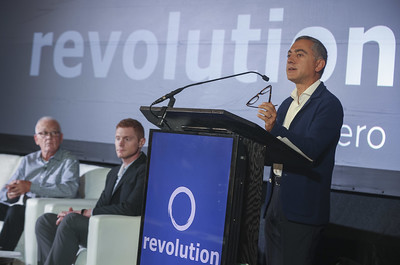Kiverdi: Using bacteria, carbon and hydrogen to make SAF

The aviation industry globally could become net zero by 2050. That is not an unrealistic aspiration and could be a genuine goal – if the industry embraces some of the technologies coming down the pipeline and is open to change. And Kiverdi plans to be part of it.
That was the core message from Hooman Yazhari, CEO, Kiverdi, speaking at the Revolution.Aero 2022 Conference.
The biotech company, formed in 2008, has developed a technique called carbon transformation, which involves breaking down carbon materials into their fundamental elements and building them back up int a range of bio-based products.
The technology has a number of applications. It has a spinoff business called Air Protein that raised $32 million in Series A funding in 2021 to create animal feed. But the technology can also be used to create other things including plastics and oil substitutes.
The process, based on techniques first mooted by NASA in the 1960s, uses fermentation at its core. “We take carbon dioxide and turn that through fermentation into fuel. We use carbon dioxide and hydrogen and a special bacteria. All of our materials are plentiful and abundant.”
He suggested that this type of fuel could even lower the cost of aviation across the board as it also shields the industry from volatility of commodity prices. “You get to the point where aviation becomes affordable in parts of the world that don’t have access to it and therefore don’t have access to basic goods and services. This is not just sustainable, but economically affordable route to aviation.”
Our platform already makes food from the air for human consumption, animal consumption. It’s the same process, the same IP, the same equipment to manufacture fuel
“The ambitious timeline of 2050 is something that we can be well within. Progress will be made within this decade. Our platform already makes food from the air for human consumption, animal consumption. It’s the same process, the same IP, the same equipment to manufacture fuel,” says Yazhari. “We welcome people who’d like to join us on this journey to also make aviation sustainable and to allow the localization of fuel production as well as the security of access to fuel at prices which are predictable years in advance.”
